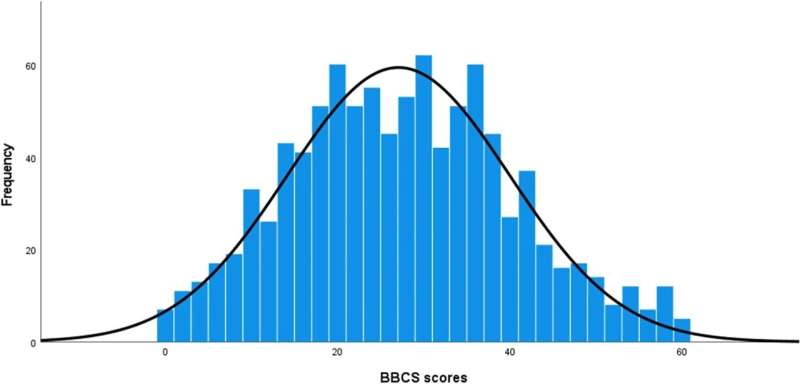This article has been reviewed according to Science X's editorial process and policies. Editors have highlighted the following attributes while ensuring the content's credibility:
fact-checked
trusted source
proofread
Exploring the positive aspects of caring for relatives at home

Fatigue, stress, scarcely any free time or feeling unappreciated: Those caring at home for relatives suffering from conditions such as dementia often feel overwhelmed or under great mental strain. For the first time in Germany, a team of researchers from Universitätsklinikum and FAU have now documented the positive aspects linked to caring for someone at home in a recent study.
"Caring for relatives at home is not all negative, caregivers also report positive aspects that they would not have experienced if they hadn't cared for their relatives at home," according to principal investigator Dr. Anna Pendergrass at the Center for Health Service Research in the Department of Psychiatry and Psychotherapy at Universitätsklinikum Erlangen.
The researchers hope that their latest study will improve the situation for caregivers in Germany. Bearing this in mind, they were keen to stress the positive aspects, or benefits, of providing care at home.
'Important values in life'
In the recently published study, 61.7 percent of those questioned stated that acting as a caregiver had brought it home to them which values were most important in their lives. More than half of those taking part in the study "learned a lot," 41 percent reported that they had noticed an improvement in their time management skills.
Further benefits cited by participants included other experiences: Those caring for relatives at home became more patient and more mature, felt more appreciated by other people or gained a positive approach to life.
Benefits irrespective of strain
The authors of the study came to another surprising conclusion. "There is no correlation between the benefits experienced and the strain or amount of time spent caring for relatives," reports Prof. Dr. Elmar Gräßel, one of the co-authors of the study and project manager at digiDEM Bayern, the digital dementia register for Bavaria.
The benefits documented in the study can be used to develop practical measures and improve the situation for caregivers and the relatives they are caring for alike. Dr. Anna Pendergrass and Prof. Dr. Elmar Gräßel agree that this would be an important contribution for encouraging people to care for relatives at home in Germany.
Beneficial effects
Experiencing benefits may have a favorable impact on caregivers, those receiving care and the situation as a whole. The first indications of a buffer effect have already become apparent in international research on the topic. The result is that negative psychological and physiological effects of caring for someone at home, such as depression or physical ailments, can be mitigated if caregivers experience benefits at the same time.
Caregivers who took part in the study are on average 61 years old, and more than two thirds of them are women (76.2 percent). The majority of caregivers are the partners and adult daughters and sons (or daughters and sons in law) of those receiving care (87.1 percent).
The average age of those requiring care is 77, and 64 percent of them are women. The reasons they require care include general frailty due to their age, or conditions such as dementia, stroke and cancer.
Innovative new questionnaire
In order to document the benefits of caring for relatives at home in a scientifically recognized manner, the researchers are the first in the world to develop a special questionnaire aimed at those caring for their relatives at home. Thanks to the questionnaire, family caregivers become more aware of the benefits they enjoy. They also appreciate that the benefits are directly relating to them caring for their relatives.
Researchers from various disciplines, experts in the field of caring for dementia patients and relatives were all involved in drawing up the questionnaire. Within the context of the current study, the researchers questioned more than 900 family caregivers in a representative pilot study supported by the Medical Service Bayern (MD, Medizinischer Dienst Bayern). "Our most important aim was to determine which favorable factors lead to most benefits," emphasized Prof. Dr. Elmar Gräßel, who conducts research at FAU into dementia.
The study is published in the journal BMC Geriatrics, and the questionnaire "Benefits of Being a Caregiver" can be downloaded free of charge from the website of the Chair.
More information: Anna Pendergrass et al, Validation of the Benefits of Being a Caregiver Scale (BBCS)—further development of an independent characteristic of informal caregiving, BMC Geriatrics (2023). DOI: 10.1186/s12877-022-03650-y
Questionnaire: www.psychiatrie.uk-erlangen.de … f-being-a-caregiver/



















